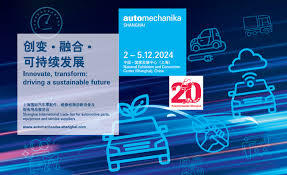
General Motors (GM) and the U.S. Department of Energy (DOE), lead sponsors for the Challenge X: Crossover to Sustainable Mobility engineering competition, congratulated students from Mississippi State University, who took top honors today at the third annual competition.
The Mississippi State team was among 17 universities from across North America that have re-engineered a 2005 Chevrolet Equinox crossover SUV using advanced propulsion technologies that increase fuel efficiency and reduce environmental impact, yet retain its consumer appeal.
The Mississippi State team designed a through-the-road parallel hybrid electric vehicle with a 1.9-liter GM direct injection turbo diesel engine fueled by B20 biodiesel. It achieved a 48% increase in fuel economy over the production vehicle.
The second place vehicle, engineered by students at the University of Wisconsin-Madison, is also a through-the-road parallel biodiesel electric hybrid design with a 1.9-liter GM diesel turbocharged engine that runs on B20. Virginia Tech was awarded third place overall with a split parallel hybrid architecture that runs on E85 ethanol with a 2.3-liter turbo spark ignition engine.
“Developing more energy-efficient and ‘greener’ automotive technologies has become a global priority,” said John F. Mizroch, Principal Deputy Assistant Secretary, U. S. Department of Energy’s Office of Energy Efficiency and Renewable Energy. “Students competing in Challenge X are on a quest to deliver environmentally friendly, functional and fuel efficient vehicles that consumers want to buy.”
Larry Burns, vice president of GM Research and Development and Strategic Planning, said advanced powertrain technologies and alternative fuels play a key role in GM’s overall strategy to help decrease the nation’s dependence on petroleum and reduce greenhouse gas emissions. “The vehicles developed by the Challenge X teams are right in line with GM’s strategy and thinking,” said Burns. “The real-world training you have gained though this program has given you invaluable engineering experience that has made you very marketable to the industry. In fact, GM has already hired 40 students from the first two years of the competition, and we intend to extend several offers at the conclusion of this year’s program.”
Other Challenge X sponsors, including Caterpillar, National Instruments, Freescale Semiconductor, Johnson Controls and MotoTron, also have hired students out of the program.
Challenge X is a unique engineering competition that is providing 17 university teams from across North America the opportunity to follow the GM Global Vehicle Development process and develop advanced propulsion technology solutions that will increase energy efficiency and reduce environmental impact. The teams are using a variety of alternative fuels including biodiesel (B20), ethanol (E85), reformulated gasoline and hydrogen.
Here are some additional highlights of the Challenge X vehicles:
Twelve teams are using biodiesel fuel (B20).
The University of Waterloo has a dedicated hydrogen fuel cell for its primary propulsion source, and as a result, their vehicle emits zero emissions from the tailpipe. The team is using compressed hydrogen.
Three teams – Pennsylvania State University, Texas Tech University and the University of Tulsa – are using hydrogen as a supplementary or secondary propulsion source. Penn State is injecting hydrogen into their vehicle’s diesel engine as an emissions abatement strategy. The Texas Tech and Tulsa teams are using hydrogen to power auxiliary systems for their vehicles.
The University of California at Davis is the only team to use plug-in hybrid technology for the energy source within their Challenge X vehicle. Their vehicle has an all-electric range on battery power.
The University of Michigan Challenge X team has developed a hydraulic hybrid, which stores pressurized fluid in large tanks from which the vehicle can extract or store energy much like a battery electric hybrid stores energy recovered from regenerative braking. Their vehicle also uses the electrical energy to propel the vehicle on electric-only power.
Two teams, Ohio State University and Virginia Tech, are using belt alternator/starter technology for an electric performance assist in their vehicles.
West Virginia University and the University of Akron are using ultracapacitors to source high levels of power for short periods of time and still recapture energy from braking. Ultracapacitors are more robust than batteries and can source more energy in operations, but can not store as much energy as a traditional battery.
The first year of the program, which began in 2004, focused on vehicle simulation and modeling and subsystem development and testing. In years two and three, students have been integrating their advanced powertrains and subsystems into the Chevrolet Equinox. In the fourth year, students will focus on customer acceptability and over-the-road reliability and durability of their advanced propulsion systems with real-world evaluation outside of the laboratory and proving ground environment.
The 17 teams participating in Challenge X include Michigan Technological University; Mississippi State University, The Ohio State University; Pennsylvania State University; Rose-Hulman Institute of Technology, San Diego State University, Texas Tech University; University of Akron; University of California, Davis; University of Michigan; University of Tennessee; University of Texas at Austin, University of Tulsa, University of Waterloo, University of Wisconsin-Madison; Virginia Tech; and West Virginia University.
DOE and GM are the headline sponsors for Challenge X. Other sponsors include Natural Resources Canada; The MathWorks; National Instruments; Freescale Semiconductor; AVL Powertrain Engineering, Inc.; U.S. Environmental Protection Agency; U.S. Department of Transportation; National Science Foundation; BP; Sensors, Inc.; Cobasys; Chevron; Johnson Controls-SAFT Advanced Power Solutions; Ballard Power Systems, Inc.; Michelin North America; Renewable Fuels Association; Caterpillar, Inc.; Vector CANtech, Inc.; Intrepid Control Systems, Inc.; Hydrogenics Corporation; MotoTron Corporation; UGS; XM Radio and OnStar.














More Stories
Huntsman Polyurethanes introduces a new range of polyurethane-based products developed for battery enclosures, battery cell potting and underfloor protection
Lakshmi Prasad Bhatta on the quest for zero road deaths
NXP accelerates the development of software defined vehicles with new family of Ethernet switches